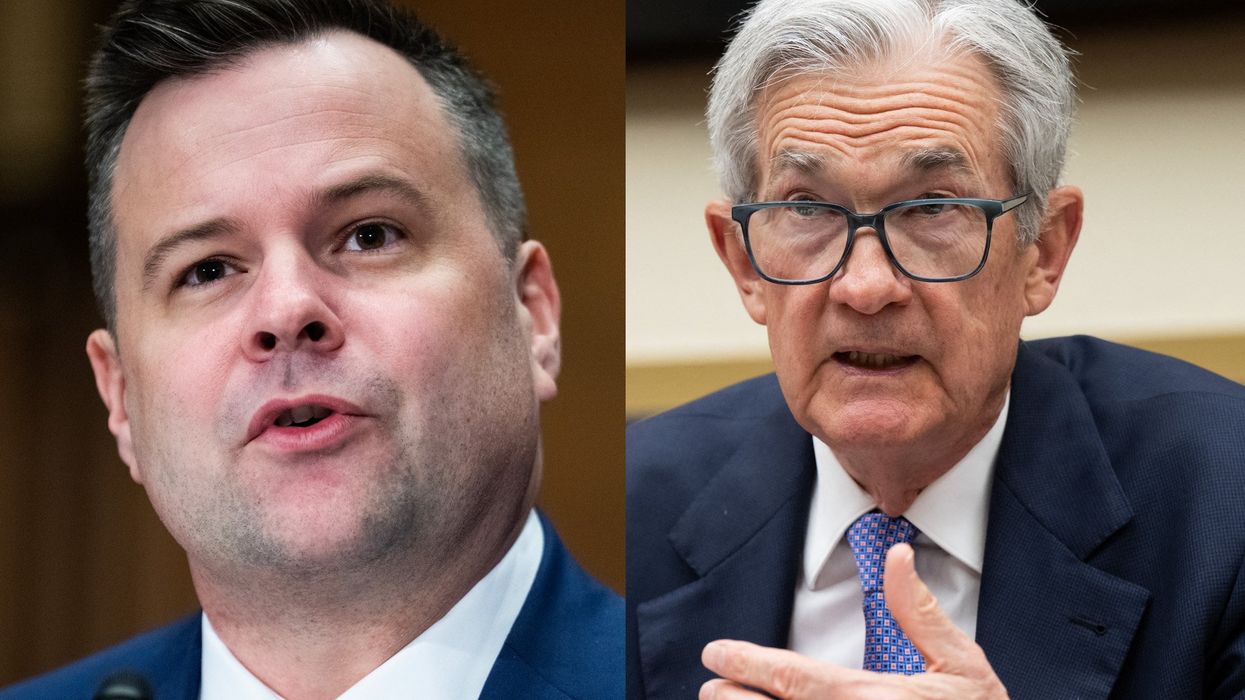Rep. Bill Pascrell (D-N.J.) may have had the best one-liner to describe the need for congressional summer recess.
"We have phone town meetings which are very successful and people like those, but unfortunately, you can't get your hands around my neck," Pascrell told a group of constituents who came to see him at a town hall meeting last month.
 Getty Images
Getty Images
Whether you do or don't have the inclination to choke out your elected official, which do you think is more important: Seeing and speaking with your representative face-to-face in your congressional district so they can see and hear what voters want, or having that member in Washington actually working on legislation?
That's the million-dollar question in Washington, D.C., and most elected officials make their best attempt at answering it during August and September.
Both houses of Congress are back in session now after taking roughly five weeks of recess — members' scheduled time to break away from D.C. — to visit their districts and states, attend campaign fundraisers and release books, among hundreds of other tasks. Though journalists and pundits often skewer elected officials for their "vacation" time and focus on the lack of activity on the House or Senate floor, some congressional staff members actually work overtime throughout the legislative gap.
They say recess is less about play than most two-minute news clips charge. It's really more about balance.
"Although there is a recess, that doesn't mean everybody is on vacation," Tom Porter, a former Republican congressional staff member, told TheBlaze. "You hear in the media a lot 'Well, Congress just left for a five-week paid vacation,' and then the staffer is sitting back there going, 'Well, they really aren't on vacation, look at their schedule' — it's around the clock."
"Yes, some of the staff in D.C. gets time to take a break," Porter continued. "But I've worked in the offices back in a member's state and ... that time for me as a district office staffer just got three times as busy."
Porter, now the vice president of an electric utility consulting firm in D.C., said the legally mandated summer recess is the one time of year when senators and House members are cut loose from their responsibilities in Washington to run congressional committees or hearings and instead are able to focus more closely on spending time with constituents.
So how did this break in legislative activity come about, and what is it meant to accomplish? And is it really vacation time? Donald Ritchie, the Senate's top historian, told TheBlaze most voters would be surprised to hear that the Founding Fathers spent much of their year out of the nation's capital altogether. And yes, it had to do with weather.
"Congress historically used to meet in the spring, under the original set of the Constitution, they began on the first week in December and ended usually in April, May, sometimes June, but if it got to July, it was really too hot to work," Ritchie said. "So for much of its history, Congress met for half the year, and was away for half the year."
"But when you get into the 20th century and with World War II and issues become more pressing, Congress was here all the time, essentially," Ritchie explained. "But even [after air conditioning was installed in the 1930s), they tended to go out early in the fall, either September or October, especially if it was an election year."
In the 1970s, members of Congress decided to organize their frenetic schedules around one massive push out of D.C.
The Legislative Reorganization Act of 1970 requires that the House and Senate take a break “not later than July 31 of each year,” or in an odd-numbered year “that Friday in August which occurs at least thirty days before the first Monday in September (Labor Day) of such year to the second day after Labor Day.” The law was passed after congressional sessions had stretched so long that in 1963, the session began in January and ended in December with just a single three-day weekend as a break during the entire year.
The key is that Congress can break its break and stay in D.C. to work whenever it deems it necessary — such as in a state of war — though that hasn’t happened since 1941.
"The members are in a tough spot, and I didn't fully appreciate it until I worked on the Hill," Stephen Rubright, vice president of congressional affairs for Export-Import Bank, told TheBlaze. "Members have to balance their duties on committees on Capitol Hill but their main duty is advocating for constituents back in the district ... and meeting with everyone from business owners to the chamber of commerce and voters in town hall meetings."
So while recess doesn't necessarily mean playtime, it also doesn't mean the country's most important work is getting done, either.
Theoretically, that will happen in September, and this week will reveal an important tone for the rest of the legislative year. Even though some House members hit the ground running Monday night (the House Intelligence Committee received a classified update from the CIA and other agencies about the Islamic State), pundits are already predicting a trimmed-down legislative agenda for this month. Yet, some House members are pressing forward and turning up the heat as summer ends, especially on the Islamic State.
We want to know: During the recess, did you try to contact your member of Congress? Did you attend a town hall meeting? And what are your predictions for this month and the rest of the legislative year? Will elected officials hit the ground running after this summer break, or — taking a lead from the President Barack Obama Monday in announcing a delay in executive action on immigration — stall out and push off important legislation? Watch TheBlaze exclusive clip below, then answer our last two poll questions!
Pete Kasperowicz contributed to this report.
—
Follow Elizabeth Kreft (@elizabethakreft) on Twitter

 Getty Images
Getty Images





